| Summit Co-Chairs: |
 Kathy Grise, IEEE Future Directions Senior Program Director, USA Kathy Grise, IEEE Future Directions Senior Program Director, USA
Bio-sketch: Kathy Grise, Senior Program Director – IEEE Future Directions, supports new and emerging initiatives, including cloud computing, big data, digital realities, AI/ML, digital twins, and digital transformation, supports IEEE Future Directions, and manages the digital presence team for Future Directions. Ms. Grise serves as the Technical Program Chair of the IEEE COMPSAC 2022 Symposium – Data Sciences, Analytics, & Technologies (DSAT). Prior to joining the IEEE staff, Ms. Grise held numerous positions at IBM, and most recently was a Senior Engineering Manager for Process Design Kit Enablement in the IBM Semiconductor Research and Development Center. Ms. Grise led the overall IT infrastructure implementation, and software development in support of semiconductor device modeling verification, packaging, and delivery; device measurement and characterization data collection and management, and automation for device modeling engineers. Ms. Grise is a graduate of Washington and Jefferson College, and an IEEE Senior member.
|
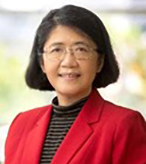 May Dongmei Wang, IEEE EMBS BHI-TC Chair, Georgia Institute of Technology and Emory University, USA May Dongmei Wang, IEEE EMBS BHI-TC Chair, Georgia Institute of Technology and Emory University, USA
Bio-sketch: Dr. Wang is a Wallace H. Coulter Distinguished Faculty Fellow and a full professor of BME and ECE at Georgia Institute of Technology (Georgia Tech) and Emory University. She received BEng from Tsinghua University China, and MS/PhD degrees from Georgia Tech. Her research is in Biomedical Big Data with AI-Driven Intelligent Reality (IR) for predictive, personalized, and precision health (pHealth). Dr. Wang delivered 260+ invited and keynote lectures, published 270+ referred articles in journals and conference proceedings, and received Emory University MilliPub Award for a high-impact paper cited over 1,000 times. She also received Georgia Tech Outstanding Faculty Mentor award. Dr. Wang is Director of Biomedical Big Data Initiative, Georgia Distinguished Cancer Scholar, Petit Institute Faculty Fellow, Kavli Fellow, Fellow of AIMBE, Fellow of IAMBE, Fellow of IEEE, and Board of Directors in American Board of AI in Medicine. Dr. Wang is Senior Editor of IEEE Journal of Biomedical and Health Informatics and Associate Editor of IEEE Transactions of BME, and serves NIH CDMA, NSF Smart Connect Health, and Brain Canada panels. She is part of Georgia Tech Provost’s Emerging Leaders and Leading Women, IEEE Future Directions Committee, and IAMBE Executive Committee. Over the years, Dr. Wang was Carol Ann and David Flanagan Distinguished Faculty Fellow, GT Biomedical Informatics Co-Director in NIH-ACTSI, and Bioinformatics-Biocomputing Core Director in NCI U54 Center of Cancer Nanotechnology Excellence. In addition, she was IEEE EMBS VP Finance, AIMBE Nomination Committee Chair, IEEE EMBS Distinguished Lecturer, and an Emerging Area Editor for Proceedings of National Academy of Sciences (PNAS). She has been supported by NIH, NSF, CDC, Georgia Research Alliance, Georgia Cancer Coalition, Shriners’ Hospitals for Children, Children’s Health Care of Atlanta, Enduring Heart Foundation, Coulter Foundation, Imlay Foundation, Microsoft Research, HP, UCB, and Amazon.
|
 Konstantina S. Nikita, National Technical Univ. of Athens, Greece Konstantina S. Nikita, National Technical Univ. of Athens, Greece
Bio-sketch: Prof. Konstantina Nikita, M.D., Ph.D., is a full Professor at the School of Electrical and Computer Engineering, National Technical University of Athens and the Irene McCulloch Distinguished Adjunct Professor of Biomedical Engineering and Medicine at Viterbi School of Engineering and Keck School of Medicine, University of Southern California. She is the Editor-in-Chief of the IEEE Journal of Antennas and Propagation and a member of the Editorial Board of the IEEE Transactions on Biomedical Engineering and IEEE Transactions on Antennas and Propagation. She has been the technical manager of several European and National R&D projects on fundamental research and practical applications. She has been Chair of the program/organizing committee of more than 50 international conferences and has served as keynote speaker at several international conferences and symposia. She has been the advisor of 29 completed Ph.D. theses, several of which have received various awards. She is a Fellow of the Institute of Electrical and Electronics Engineers (IEEE), a Founding Fellow of the European Association of Medical and Biological Engineering and Science (EAMBES), and a Fellow of the American Institute of Medical and Biological Engineering (AIMBE). She serves as chair of the LS7 Consolidator Grant Panel of the European Research Council (ERC), for granting investigator-driven frontier research in the domain of life sciences. Her current research interests include biomedical image computing and analytics, physiological systems modeling and identification, biomedical telemetry, bioelectromagnetics, intelligent health systems, medical decision support, and biomedical informatics. She has published 200 journal articles and 350 conference proceedings papers, is the author or editor of 12 books, and holds several patents for her discoveries. She has received various awards, among which the Bodossakis Foundation Academic Prize (2003) for exceptional achievements in “Theory and Applications of Information Technology in Medicine”.
|
| Technical Program Co-Chairs: |
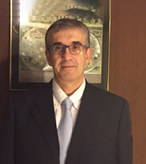 Dimitrios I. Fotiadis, Editor in Chief of IEEE Journal of Biomedical and Health Informatics, University of Ioannina, Greece Dimitrios I. Fotiadis, Editor in Chief of IEEE Journal of Biomedical and Health Informatics, University of Ioannina, Greece
Bio-sketch:Prof. Dimitrios I. Fotiadis received the Diploma degree in chemical engineering from the National Technical University of Athens, Athens, Greece, and the Ph.D. degree in chemical engineering and materials science from the University of Minnesota, Minneapolis. He is currently a Professor of Biomedical Engineering in the Department of Materials Science and Engineering, University of Ioannina, Ioannina, Greece, where he is also the Director of the Unit of Medical Technology and Intelligent Information Systems, and is also an Affiliated Member of Foundation for Research and Technology Hellas, Institute of Molecular Biology and Biotechnology, Dept. of Biomedical Research. He was a Visiting Researcher at the RWTH, Aachen, Germany, and the Massachusetts Institute of Technology, Boston. He has coordinated and participated in more than 250 R&D funded projects (in FP6, FP7, H2020, and national Projects), being the coordinator (e.g. INSILC, TAXINOMISIS, HOLOBALANCE, CARDIOCARE etc.) and Technical coordinator (e.g. SMARTOOL, KARDIATOOL, TO_AITION, etc.). He is the author or coauthor of more than 300 papers in scientific journals, 500 papers in peer-reviewed conference proceedings, and more than 50 chapters in books. He is also the author/editor of 30 books. His work has received more than 18,000 citations (h-index=68). He is IEEE EMBS Fellow, EAMBES Fellow, Fellow of IAMBE, member of the IEEE Technical Committee of information Technology in Healthcare, Editor in Chief of IEEE Journal of Biomedical and Health Informatics, Member of the Editorial Board in IEEE Reviews in Biomedical Engineering, Associate Editor for IEEE Open Journal in Engineering in Biology and Medicine and Computers in Biology and Medicine. His research interests include multiscale modelling of human tissues and organs, intelligent wearable/implantable devices for automated diagnosis, processing of big medical data, machine learning, sensor informatics, image informatics, and bioinformatics. He is the recipient of many scientific awards including the one by the Academy of Athens. He is the co-founder of PD Neurotechnology Ltd, UK.
|
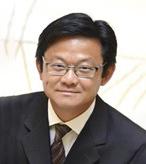 Yufei Huang, Univ. of Pittsburg Medical Center, USA Yufei Huang, Univ. of Pittsburg Medical Center, USA
Bio-sketch: Prof. Yufei Huang is currently Professor and Leader in AI for Cancer Research at UMPC Hillman Cancer Center and Department of Medicine, School of Medicine, University of Pittsburg. Prior to that, he was Professor at the Department of Electrical and Computer Engineering at the University of Texas at San Antonio (UTSA), and an adjunct professor at the Department of Population Health Science at the University of Texas Health San Antonio. He has been a visiting professor at the Center of Bioinformatics, Harvard Center for Neurodegeneration & Repair.
Dr. Huang’s expertise is in the areas of computational biology, brain-computer interface, machine learning, and artificial intelligence. One of the current focuses is to study the functions of mRNA methylation using machine learning and high throughput sequencing technologies, where his lab developed several widely used m6A data analysis pipelines. His lab also develops artificial intelligence systems for precision medicine and passive EEG-based brain-machine-interaction systems for an understanding of human cognitive behaviors. He was a recipient of the National Science Foundation (NSF) CAREER Award, UTSA Presidential Achievement Award on Research Excellence, Best Paper Award IEEE Biomedical and Health Informatics Conference, Best Paper Award of Artificial Neural Networks in Engineering Conference, and Best Paper Award of IEEE Signal Processing Magazine. He is a member of the UTSA Academy of Distinguished Researchers. His research has been supported by NSF, NIH, Air Force Office of Scientific Research, Army Research Lab, Department of Defense, and Qatar National Research Fund. He serves on IEEE Biomedical and Health Informatics Technical Committee and in the role of Associate Editor for multiple journals including IEEE Transactions on Signal Processing, IEEE Transactions on BHI, BMC Systems Biology, Frontiers Genetics, and Neurocomputing. |
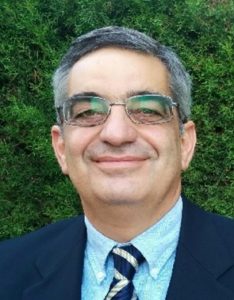 Constantinos S. Pattichis, Univ. of Cyprus, Cyprus Constantinos S. Pattichis, Univ. of Cyprus, Cyprus
Bio-sketch: Professor Constantinos S. Pattichis has 30 years of experience in eHealth and connected health, medical imaging, biosignal analysis, intelligent systems and explainable AI, and more recently in mHealth interventions based on X Reality applications. He has been involved in numerous projects in these areas funded by EU and other bodies, with a total funding managed more than 14 million Euro. He is the leading technical coordinator of the EU Digital Covid Certificate platform (see eudcc.gov.cy) for Cyprus that was used by more than 500,000 citizens for issuing their certificates. He is also leading the “Deployment of Generic Cross Border eHealth Services in Cyprus”, an EU Innovation and Networks Executive Agency (INEA), Connecting Europe Facility (CEF), funded project where 23-member states participate. More recently, he was awarded as Co-PI the development and implementation of a highly competitive national integrated project entitled “Integrated National eHealth Ecosystem (eHealth4U)”, that targets to develop the national eHealth infrastructure based on strict adherence to interoperability protocols for the offering of advanced big-data eHealth services. He has published 125 journal publications, 232 conference papers, and 30 chapters in books in these areas (no. of citations more than 10,000, h-score 51). He is/was General Co-Chair of IEEE International Conference on Biomedical and Health Informatics BHI2021 and CAIP 2021, Program Co-chair of the IEEE BHI2019 and BHI2018, IEEE Computer-Based Medical Systems (CBMS2017), General Co-chair of the IEEE 4th Middle East Conference on Biomedical Engineering (MECBME 2018), IEEE International Conferences on Information Technology Applications in Biomedicine (ITAB 2009), Bioinformatics and Bioengineering (BIBE 2012), and 13th Medical and Biological Engineering and Computing (Medicon 2016). He is a Fellow of IEEE, IET, International Academy of Medical and Biomedical Engineering (IAMBE) and European Alliance for Medical & Biological Engineering & Science (EAMBES).
|
| Advisory Co-Chairs: |
 Stephen T. C. Wong, Houston Methodist/Weill Cornell, USA Stephen T. C. Wong, Houston Methodist/Weill Cornell, USA
Bio-sketch: Stephen T. C. Wong, PhD, PE, holds the John S. Dunn presidential distinguished chair and is the founding chair of Systems Medicine and Bioengineering Department, director of the T.T. & W.F. Chao Center for BRAIN, director of Translational Biophotonics Lab, director of the Cellular and Tissue Microscopy Core Lab, chief research information officer, and associate director of Cancer Center, Houston Methodist Hospital. He is a professor of radiology, neuroscience, pathology, and laboratory medicine at Cornell University.
Wong is also an industrial veteran – his career highlights include: led teams that automated VLSI MB DRAM production (Bell Labs), produced a web trading platform (Charles Schwab) and designed and developed a hospital-wide picture archiving and communication system (UC San Francisco), and headed product development departments at Philips Healthcare. At Harvard, he founded two campus-wide centers, one for bioinformatics research in neurodegeneration at Harvard Medical School, where he pioneered the integration of high content screening and systems biology to delineate disease mechanisms, and the other for functional and molecular imaging at Brigham and Women’s Hospital (BWH), including the creation of the first cyclotron facilities and MRI/PET research imaging cores at BWH. He is a Fellow of IEEE and AMIA and a licensed professional engineer (electrical engineering) in US. He is the Editor of Computerized Medical Imaging and Graphics. Wong dedicated the second half of his life in solving disease problems. |
|
| International Program Co-Chairs: |
 Metin Akay, Founding Chair & John S Dunn Endowed Chair Professor, President, IEEE Engineering Medicine and Biology Society 2021, University of Houston, USA Metin Akay, Founding Chair & John S Dunn Endowed Chair Professor, President, IEEE Engineering Medicine and Biology Society 2021, University of Houston, USA
Bio-sketch: Prof. Metin Akay received his B.S. and M.S. in Electrical Engineering from the Bogazici University, Istanbul, Turkey in 1981 and 1984, respectively, and a Ph.D. degree from Rutgers University in 1990. He also received an honorary Ph.D. from the Aalborg University in 2015. He is currently the founding chair of the new Biomedical Engineering Department and the John S. Dunn professor of biomedical engineering at the University of Houston. He is currently the President-Elect of IEEE Engineering in Medicine and Biology Society.
He has played a key role in promoting biomedical education in the world by writing and editing several books, editing several special issues of prestigious journals, including the Proc of IEEE, and giving several keynotes and plenary talks at international conferences, symposiums, and workshops regarding emerging technologies in biomedical engineering. He is the founding editor-in-chief of the Biomedical Engineering Book Series published by the Wiley and IEEE Press and the Wiley Encyclopedia of Biomedical Engineering. He is also the editor of the Neural Engineering Handbook published by Wiley/IEEE Press and the first steering committee chair of the IEEE Trans on Computational Biology and Bioinformatics.
He established the IEEE EMBS Special Topic Conference on Neural Engineering. He is also the chair of the IEEE EMBS Neuroengineering Technical Committee. He was the program chair of the International IEEE EMBS 2001 and the co-chair of the International IEEE EMBS 2006 and the program co-chair of the International IEEE EMBS 2011 and the IEEE EMBS Point-of-Care Health Technologies (POCHT) 2013. He currently serves on the advisory board of several international journals including the IEEE T-BME, IEEE T-ITIB, Smart Engineering Systems, etc. and furthermore serves on several NIH and NSF review panels Dr. Akay is a recipient of the IEEE EMBS Early Career and Service awards as well an IEEE Third Millenium Medal and is a fellow of IEEE, the Institute of Physics (IOP), the American Institute of Medical Biological Engineering( AIMBE), and the American Association for the Advancement of Science (AAAS). His Neural Engineering and Informatics Lab is interested in developing a novel Brain Chip for precision medicine and an intelligent wearable system for monitoring and detecting coronary artery disease. In addition, his lab is currently investigating the effect of maternal alcohol and nicotine intake on the health risk in newborns.
|
 Yuanting Zhang, Hong Kong Centre for Cerebro-Cardiovascular Health Engineering and City University of Hong Kong , HKSAR, China Yuanting Zhang, Hong Kong Centre for Cerebro-Cardiovascular Health Engineering and City University of Hong Kong , HKSAR, China
Bio-sketch: Professor Yuan-Ting Zhang is currently the Chairman and Director of Hong Kong Center for Cerebro-cardiovascular Health Engineering (COCHE) at HKSTP and the Chair Professor of Biomedical Engineering at City University of Hong Kong. He was the Sensing System Architect in Health Technology at Apple Inc., California, USA, and the founding Director of the Key Lab for Health Informatics of Chinese Academy of Sciences. Professor Zhang dedicated his service to the Chinese University of Hong Kong from 1994 to 2015 in the Department of Electronic Engineering, where he served as the first Head of the Division of Biomedical Engineering and the founding Director of the Joint Research Center for Biomedical Engineering. Prof. Zhang was the Editor-in-Chief for IEEE Transactions on Information Technology in Biomedicine and the founding Editor-in-Chief of IEEE Journal of Biomedical and Health Informatics. He served as Vice President of IEEE EMBS, Chair of 2016-2018 IEEE Award Committee in Biomedical Engineering, Technical Program Committee Chair of EMBC’98 in Hong Kong, Conference Chair of EMBC’05 in Shanghai, International Committee Co-Chair of EMBC’07 in Lyon, International Committee Chair of EMBC’ 11 in Boston, International Committee Chair of EMBC’13 in Osaka, Technical Program Committee Co-Chair of EMBC’17 in Jeju Island, and International Program Co-Chair for EMBC’2020 in Montreal Canada. He was invited to give keynote talks at various international conferences worldwide including at the First IEEE Life Sciences Grand Challenges Conference held at the National Academy of Sciences in Washington DC in 2012 and at the 40th IEEE-EMBS Annual International Conference (EMBC’18) in Hawaii in 2018. Prof. Zhang is currently the Editor-in-Chief for IEEE Reviews in Biomedical Engineering, Chair of the Working Group for the development of IEEE 1708 Standard on Wearable Cuffless Blood Pressure Measuring Devices, a member of Award Committees for International Academy of Medical and Biological Engineering (IAMBE), and the conference Chair for IEEE Summer School and Symposium Series on Medical Devices and Biosensors in conjunction with the International Conference on Cerebro-cardiovascular Health Engineering (MDBS-CHE).
Prof. Zhang’s research interests include cardiovascular health engineering, unobtrusive sensing and wearable devices, neural muscular modeling and pHealth technologies. He was selected on the 2014, 2015, 2016, 2017, 2018 and 2019 lists of China’s Most Cited Researchers by Elsevier. He won a number of international awards including IEEE-EMBS best journal paper awards, IEEE-EMBS Outstanding Service Award, IEEE-SA 2014 Emerging Technology Award. He is a member of Sigma Xi. Prof. Zhang was elected to be IAMBE Fellow, IEEE Fellow and AIMBE Fellow for his contributions to the development of wearable and m-Health technologies. |
| Diversity and Inclusion Co-Chairs: |
 Maria Fernanda Cabrera, Tech. Univ. of Madrid, Spain Maria Fernanda Cabrera, Tech. Univ. of Madrid, Spain
Bio-sketch: Maria Fernanda Cabrera is Telecommunication Engineer, with a PhD in Biomedical Engineering, working as Associate Professor of Biomedical Engineering at the Telecommunication School, Universidad Politecnica de Madrid. She is the Innovation Director of Life Supporting Technologies (LifeSTech) research group, Financial Director of the UniversAAL IoT Coallition (UiC) and Secretary of the ACTIVAGE.ORG Association. Besides her teaching activities, she works as project coordinator and technical manager in different EU and national research funded projects. She has acted as project coordinator, technical or quality manager in 15 research projects funded by the European Commission. She has participated in over 40 EU projects so far. Her field of expertise covers a wide range of applications in the domains of the ICT applied to different sectors like health and social inclusion, including personalisation of services, data interoperability, semantics, and accessibility of ICT. She is the author of more than 120 scientific papers in national and international journals. Currently she is coordinating Gender STI, an H2020 research project on Gender Equality in Science, Technology and Innovation in dialogues between Europe and third countries; and BRAINTEASER (BRinging Artificial INTelligencE home for a better cAre of amyotrophic lateral sclerosis and multiple SclERosis), an H2020 project aiming to integrate societal, environmental and human health data to develop disease progression models for Amyotrophic Lateral Sclerosis (ALS) and Multiple Sclerosis (MS), and to predict the fast progression and adverse events of those diseases.
Since 2012 she has been co-coordinating the Action Group D4 “Age-friendly environments” of the EIP on AHA. In March 2018, she participated in the foundation of the Biomedical and Health Informatics IEEE women in engineering committee.
|
|
 Yasemin Akay, Univ. of Houston, USA/ IEEE Senior Member/ Associate Editor, IEEE OJEMB/ Guest Editor for two Special Issues, IJMS Yasemin Akay, Univ. of Houston, USA/ IEEE Senior Member/ Associate Editor, IEEE OJEMB/ Guest Editor for two Special Issues, IJMS
Bio-sketch: Dr. Yasemin M. Akay is currently an Instructional Associate Professor at the Department of Biomedical Engineering, Cullen College of Engineering, University of Houston. She received her B.S. in Pharmaceutical Sciences from the Hacettepe University, Ankara, Turkey and M.S. and PhD in Biomedical Engineering from Rutgers University, Piscataway, NJ, USA.
She completed her Postdoctoral Research Fellowships (NIH) in the Departments of Pharmacology & Toxicology, the Department of Physiology Dartmouth Medical School, the Department of Biology, Dartmouth College and in the Department of Physiology & Biophysics, Boston University, School of Medicine, Advanced Research Center.
Previously, she was a Research Assistant Professor in the School of Biological & Health Systems Engineering, Fulton School of Engineering, Arizona State University and Instructional and Research Assistant Professor, Department of Biomedical Engineering, Cullen College of Engineering, University of Houston.
|
| Data Hackathon Committee C o-Chairs: |
 Andrew Laine, Columbia University, USA Andrew Laine, Columbia University, USA
Bio-sketch: As director of the Heffner Biomedical Imaging Lab at Columbia, Professor Andrew Laine focuses on the medical signal and image processing, computer-aided diagnosis, and biomedical and imaging informatics. His work is based on imaging structures at the molecular, cellular, tissue, and organ levels of analysis. The goal is to develop biomedical technology for unmet clinical needs and to transition that technology into commercial products that will improve healthcare and save lives. Professor Laine was the first to use multiscale “wavelet” representation to enhance subtle details in mammograms. Today, the algorithm he developed in 1992 is used in almost all commercial digital mammography systems. Currently, Laine is applying multiresolution wavelet techniques to classify pulmonary emphysema. He is also collaborating on a project in medical informatics to enable clinicians to better diagnose a patient using both text and annotated findings from medical images. Dr. Laine received a BS in biological science from Cornell University in 1977, an MS in chemistry from the University of Connecticut in 1980, and a DSc in computer science from Washington University, St. Louis, in 1989. He is a fellow of the Institute of Electrical and Electronics Engineers, and a fellow of the International Federation for Medical and Biological Engineering. He is Co-Chair of the Center for Health Analytics in Columbia’s Data Science Institute, and past president of IEEE Engineering in Medicine and Biology Society.

Dr. Byung-Jun Yoon, Texas A&M, USA
Bio-sketch: Dr. Byung-Jun Yoon received a B.S.E. (summa cum laude) degree from the Seoul National University (SNU), Seoul, Korea, in 1998, and the M.S. and Ph.D. degrees from the California Institute of Technology (Caltech), Pasadena, CA, in 2002 and 2007, respectively, all in Electrical Engineering. Since 2008, he has been with the Department of Electrical and Computer Engineering, Texas A&M University, College Station, TX, USA, where he is currently an Associate Professor. Dr. Yoon holds a joint appointment at Brookhaven National Laboratory (BNL), Upton, NY, where he is a Scientist in Computational Science Initiative (CSI). He received the National Science Foundation (NSF) CAREER Award, the Best Paper Award at the 9th Asia Pacific Bioinformatics Conference (APBC), the Best Paper Award at the 12th Annual MCBIOS Conference, and the SLATE Teaching Excellence Award from the Texas A&M University System. Dr. Yoon’s main theoretical interests lie in Scientific AI/ML, optimal experimental design (OED), and objective-based uncertainty quantification. He is actively working on the development of these methods and their application to various scientific domains, including computational biology and materials science.
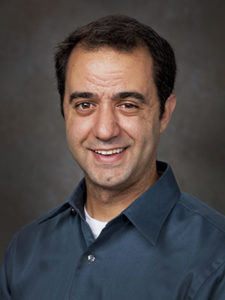
Dr. Bobak J Mortazavi, Texas A&M, USA
Bio-sketch: Bobak Mortazavi, PhD, is an Assistant Professor of Computer Science & Engineering at Texas A&M University. Prior to joining the computer science department, Dr. Mortazavi served as a postdoctoral associate in the Section of Cardiovascular Medicine, Department of Internal Medicine, at the Yale School of Medicine. His research focuses on the intersection of wearable technology, machine learning, and cardiovascular-focused clinical outcomes research, to develop longitudinal, personalized models of health.
|
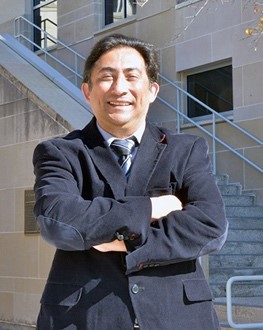 Mario A. Flores, Department of Electrical and Computer Engineering, Joint Appointment with the Department of Biomedical Engineering and Faculty, University of Texas Health Science Center Mario A. Flores, Department of Electrical and Computer Engineering, Joint Appointment with the Department of Biomedical Engineering and Faculty, University of Texas Health Science Center
Bio-sketch: Mario A Flores is Assistant Professor of Electrical and Computer Engineering and Biomedical Engineering at the University of Texas at San Antonio, and joint program Faculty of Biomedical Engineering at the University of Texas Health Science Center. He received his M.S., and Ph.D. in Applied Mathematics and Electrical Engineering (Computational Biology Laboratory) from the University of Texas in 2010 and 2015, respectively. He was also a postdoctoral fellow at the National Center for Biotechnology Information of the National Institutes of Health from 2015 to 2019. His research focuses on DNA and RNA sequence methods, transcriptomics analysis, epigenetics, comparative genomics, and deep learning to study mechanisms of gene regulation. He has developed computational models capable of selective identification of gene regulatory elements and their strength based on sequence-specific signatures of tissue-specific enhancers, reprogramming of regulatory elements, and modulation of gene expression. Currently, he is investigating the mechanisms of gene regulation by transcribed enhancers using several technologies including single-cell RNA-Seq and Natural Language Processing.
|
| Young Professional Activities Co-Chairs: |
 Subhamoy Mandal, IEEE Senior Member/ Maxer Endoscopy GmbH and Technical University of Munich, Germany Subhamoy Mandal, IEEE Senior Member/ Maxer Endoscopy GmbH and Technical University of Munich, Germany
Bio-sketch: Dr. Subhamoy Mandal is currently a Clinical Applications Engineer and Research Lead with Maxer Endoscopy GmbH (part of Erbe Elektomedizin Group), and an Affiliated Researcher with the Technical University of Munich. Previously, he was a Research Scientist in Molecular Imaging at the Division of Medical Physics in Radiology, German Cancer Research Center (DKFZ), Heidelberg. Previously, he was a DAAD PhD scholar at the Chair of Biological Imaging at TU München, and the Institute of Biological and Medical Imaging at Helmholtz Zentrum München. He received his MS (by research) from the Indian Institute of Technology Kharagpur, and B.E. in Biomedical Engineering from Manipal University, Karnataka, India. He is a recipient of the prestigious DAAD PhD Scholarships and the UK Commonwealth Scholarship. His areas of interest are Medical Signal & Image Processing, Medical Imaging and point-of-care affordable healthcare technologies.
Subhamoy is an active Member of IEEE, and is a recipient of Computer Society’s Richard E. Merwin Student Scholarship. He was the 2013-14 Student Rep and AdCom member of IEEE Engineering in Medicine and Biology (EMB) Society, 2010-12 Chair, IEEE Education Society Student Activity Committee (IEEE EdSocSAC), and was awarded the IEEE Student Leadership Award (conferred by EdSoc) in 2013 for his contributions, He was the Founding Chair, IEEE EMB Student Club of IIT Kharagpur, which has been awarded the Best New Student Club/Chapter Award 2010 by IEEE EMBS Student and Member Activity Committee. He has been a Member of IEEE Ad-hoc Committee on Social Media Policy performing under the aegis of the IEEE Board of Directors, and also actively volunteered with the IEEE Student Branches at IIT Kharagpur(Treasurer 2009-10) and MIT Manipal.
Subhamoy has been closely associated with several corporate organizations including Philips, GE and Microsoft. During his internships with Philips BOP and the master’s thesis, he has focused on developing low-cost point of care technologies to address the healthcare challenges of emerging economies. At GE Global Research his primary area of focus has been Magnetic Resonance Imaging (MRI) and its application in Brain Iron Quantification, leading to early diagnosis of Alzheimer’s and other neurodegenerative diseases.
His goal is to achieve success in innovating technical and user-friendly solutions using the expertise of Biomedical engineering and domain knowledge of Medical Sciences by synchronized efforts in a collective venture. |
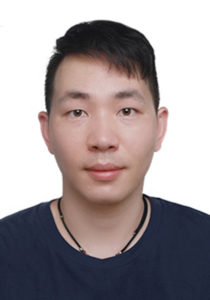 Li Tong, Shanghai United Imaging Healthcare Co., Ltd., China Li Tong, Shanghai United Imaging Healthcare Co., Ltd., China
Bio-sketch: Dr. Li Tong currently works as a medical imaging engineer at Shanghai United Imaging Healthcare Co., China. He received his B.S. in Biomedical Engineering from Peking University in 2014 and Ph.D. in Biomedical Engineering from Georgia Institute of Technology and Emory University in 2020. His research focuses on biomedical data analytics and medical imaging processing. Previously, he has investigated the application of machine learning and deep learning in multi-omics integration. Deep autoencoders have been utilized to implicitly model association or causal relationships among multi-omics (e.g., mRNA and DNA methylation) to improve the survival analysis for breast cancer. Currently, he is investigating the application of deep learning to advancing MRI techniques such as Fast MRI and super-resolution for MRI.
|
| Publicity Chair and Webmasters: |
 Julie Bernicker, Digital Content and Communications Specialist, Future Directions Julie Bernicker, Digital Content and Communications Specialist, Future Directions
Bio-sketch: Julie Bernicker graduated from Rutgers University in 2014 with a B.A. in Communications. She is currently the Digital Communications and Content Specialist for IEEE Digital Reality (DRI), an IEEE Future Directions initiative launched in support of Digital Transformation. Julie has been working at IEEE for over 5 years and has held several different roles. She is a marketing and communications professional with a creative mindset, keen attention to detail, and exceptional writing/editing skills. She has extensive experience managing digital projects and programs including webinars, websites, marketing graphics, email campaigns, and more.
|
Wenqi Shi and Felipe Giuste, Georgia Tech and Emory Univ., USA
 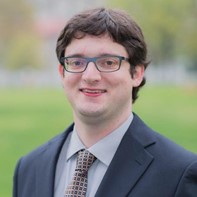
|




















